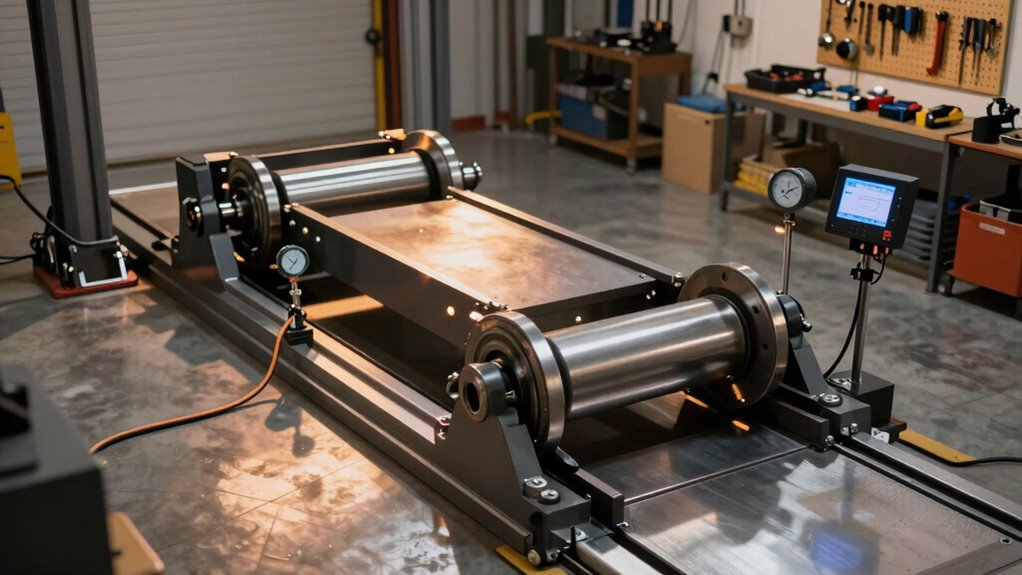
Truck Dyno ROI: The Business Case for Your Workshop
Stop wasting money on road testing. One dyno investment eliminates comebacks, builds loyalty, and outpaces competitors. Here’s why your workshop needs it.
Dynamometers play a vital role in various industries by assessing performance and structural integrity. In the aerospace sector, they conduct tests on aircraft components and replicate flight conditions. Renewable energy systems benefit from dynamometers by enhancing power output and reliability.
In manufacturing, these devices ensure product durability through rigorous quality control measures. The marine industry sees improvements in engine efficiency and overall performance with the help of dynamometers. Power generation plants utilise dynamometers to assess the performance of turbines and generators.
In the construction industry, dynamometers are used to analyze material strength for ensuring structural integrity. These versatile tools are transforming industry standards by driving innovation and efficiency across different sectors.
Aerospace Testing Applications
Dynamometers are vital tools in the aerospace industry, essential for evaluating aircraft components' performance and durability under extreme conditions. These devices are crucial for conducting thrust assessments on jet engines, ensuring they adhere to strict safety and efficiency requirements. By simulating the rigorous conditions experienced during flight, dynamometers aid engineers in designing and testing aircraft parts that can withstand harsh environments.
In addition, dynamometers are indispensable for measuring forces accurately, enabling the precise evaluation of the forces needed to operate various aircraft mechanisms like doors and landing gear. These devices also play a key role in moving aircraft across different terrains, accurately measuring the forces involved in towing and taxiing operations, from grassy fields to airport aprons. Ultimately, dynamometers are essential for aerospace testing, providing accurate force data for evaluating performance and testing component durability to ensure safe and reliable aircraft operation.
Specific Examples and Product Recommendations:
Renewable Energy System Assessments
Assessing renewable energy systems involves using dynamometers to evaluate their power output, efficiency, and reliability. Dynamometers are crucial for examining the performance of renewable energy sources such as wind turbines and solar panels, ensuring they function optimally. These devices not only gauge the power output of these systems but also assess their efficiency, aiding in maximising energy production. By analysing the data from dynamometers, specialists can improve the performance of renewable energy systems, enhancing their reliability and sustainability in the long term. Moreover, dynamometers help in understanding the environmental impact on these systems, facilitating better adaptation to diverse conditions and improving overall reliability.
| Aspect | Description | Importance |
|---|---|---|
| Power Output | Determines the quantity of electricity generated by the renewable energy system | High |
| Performance Evaluation | Evaluates the overall efficiency and effectiveness of the system | Medium |
| Environmental Impact | Assesses how the system interacts with and responds to environmental conditions | High |
Structural integrity assessments in manufacturing involve important quality control checks to guarantee the reliability of components.
These evaluations also encompass rigorous material stress testing to assess durability.
Moreover, equipment calibration standards play a pivotal role in maintaining the accuracy of dynamometers used for these assessments.
Quality Control Inspections in Manufacturing
In the realm of manufacturing, ensuring the structural integrity of components through quality control inspections is crucial for meeting industry standards and guaranteeing product performance. Utilising dynamometers for quality control inspections in manufacturing involves assessing forces and stresses on materials to identify defects and weaknesses. These inspections play a vital role in validating product designs and ensuring that manufactured goods are robust and dependable. By offering precise force measurements, dynamometers contribute to enhancing the overall quality and safety of products before they are introduced to the market. Manufacturers depend on dynamometers to detect potential failures early in the manufacturing process, saving time and resources while ensuring their products meet the necessary standards for structural integrity.
Significance of Quality Control Inspections
Quality control inspections using dynamometers are significant as they help in identifying any flaws or weaknesses in materials or components before they are assembled into the final product. By detecting defects early on, manufacturers can rectify issues promptly, avoiding costly recalls or product failures later in the production cycle. For example, in the automotive industry, dynamometer tests on engine components can reveal stress points that may lead to engine failure under certain conditions, ensuring the reliability and safety of the vehicle.
Benefits of Dynamometer Testing
Dynamometer testing provides manufacturers with valuable data on the performance and durability of materials, allowing them to make informed decisions about product design and materials selection. For instance, in the aerospace industry, dynamometer tests on aircraft components can simulate extreme conditions to ensure they can withstand the rigours of flight, enhancing the safety and longevity of the aircraft. By conducting thorough dynamometer tests, manufacturers can enhance the quality and reliability of their products, ultimately building trust with consumers and maintaining a competitive edge in the market.
Importance of Early Failure Detection
Early detection of potential failures through dynamometer testing is crucial for preventing costly recalls, warranty claims, and damage to brand reputation. By identifying weaknesses in materials or components before they reach the final product stage, manufacturers can address issues proactively, saving time and resources in the long run. For example, in the construction industry, dynamometer tests on structural elements can reveal weak points that may compromise the safety of buildings, allowing engineers to reinforce them before any issues arise. This proactive approach to quality control can significantly reduce the risk of product failures and ensure customer satisfaction.
Material Strain Testing
Manufacturers utilise dynamometers to conduct material strain testing to ensure the structural integrity and performance of components under varying loads in the manufacturing sector. These tests involve exposing materials to different levels of strain to evaluate their ability to withstand pressure and deformation.
By measuring strain, stress, and deformation, engineers can assess the material's performance, ensuring it meets safety and durability standards. Dynamometers are crucial for performance evaluation, providing valuable data to enhance designs and manufacturing processes.
Through deformation measurements, manufacturers can anticipate potential failure points and make informed decisions about material selection. Ultimately, dynamometers empower engineers to develop products that are not only reliable but also compliant with industry regulations.
Equipment Calibration Standards
Ensuring precise and reliable force measurement is crucial in the manufacturing industry, with equipment calibration standards playing a pivotal role in guaranteeing accurate structural integrity assessments. Calibration procedures, such as those outlined in ISO 17025 accreditation, are important for maintaining the quality control of dynamometers. These standards ensure that the calibration processes are consistent, reliable, and adhere to industry regulations.
Regular calibration of equipment is necessary to uphold accuracy and meet quality standards. By following these calibration standards, manufacturers can improve product quality, safety, and operational efficiency. Adhering to ISO 17025 accreditation not only guarantees compliance but also instils confidence in the reliability of force measurement tools, ultimately contributing to the overall success of manufacturing processes.
Utilising dynamometers in the maritime sector is vital for enhancing the efficiency and performance of ship engines and propulsion systems. These advanced tools enable engineers to precisely measure and analyse the power output and torque of marine engines, leading to improvements in reliability and efficiency. By conducting tests with dynamometers, marine engineers can adjust engine settings to achieve optimal fuel efficiency while meeting stringent emission standards. This optimisation process is essential for ensuring that ship engines operate at their highest performance levels in various sea conditions.
Furthermore, the data gathered from dynamometer testing in the maritime industry plays a pivotal role in enhancing engine design, decreasing maintenance expenses, and ultimately boosting vessel performance. Through consistent testing and adjustments using dynamometers, marine professionals can optimise ship engines and propulsion systems for peak operation, ensuring smooth voyages and cost-effective maritime activities.
In the marine industry, dynamometers are crucial tools for monitoring and improving the performance of ship engines and propulsion systems. By accurately measuring power output and torque, engineers can fine-tune engine parameters to enhance efficiency and compliance with emission regulations. For example, the Dynojet Marine Dynamometer is a recommended product for conducting precise tests on marine engines, enabling engineers to achieve optimal performance and fuel efficiency.
Enhancing engine design, reducing maintenance costs, and ensuring smooth sailing are all benefits derived from the use of dynamometers in the maritime sector. By continuously testing and adjusting engine parameters, marine professionals can achieve peak performance levels and optimal fuel efficiency, leading to cost-effective operations and improved reliability. The application of dynamometers in marine engineering is indispensable for achieving high performance and efficiency in ship operations.
Efficiency testing in power generation is essential for evaluating power plant performance and analyzing energy output.
By using dynamometers, power companies can assess the efficiency of turbines and generators to optimize energy production and minimize waste.
This process allows for the improvement of equipment performance and reliability, ultimately leading to reduced downtime and maintenance costs in the power generation sector.
Quantifying power output and energy efficiency in power plants, dynamometers play a crucial role in evaluating the performance of turbines, generators, and related equipment. Here's why they are vital for power plant testing and performance optimisation:
Assessing the energy output of turbines and generators in power generation processes is crucial for optimizing efficiency and reducing waste. Dynamometers play a vital role in this task by measuring torque and power outputs, enabling the optimization of energy efficiency in power generation processes. These devices help evaluate the performance of various energy systems such as wind turbines and hydroelectric generators. By providing precise data on energy output, dynamometers aid in enhancing the overall effectiveness and reliability of power generation. The use of dynamometers in the power generation industry is essential for meeting energy demands sustainably while minimizing environmental impact. Through power output analysis, industries can adjust their operations to ensure they operate at peak efficiency levels to generate power efficiently and responsibly.
Using Dynamometers for Energy Output Analysis
Assessing the energy output of turbines and generators is essential for optimizing efficiency and minimizing waste in power generation processes. Dynamometers are crucial in measuring torque and power outputs to facilitate energy efficiency optimization. For instance, the TorqSense dynamometer by Crane Electronics provides accurate measurements for evaluating the performance of wind turbines. By utilizing dynamometers like the TorqSense, industries can ensure they are operating their energy systems effectively and responsibly.
Material Strength Analysis in Construction
In the realm of construction, dynamometers play a crucial role in assessing the structural integrity of materials by precisely measuring the forces applied during testing. These instruments are essential for evaluating the load-bearing capacity of construction materials such as concrete, steel, and composites. Dynamometers offer valuable insights into material strength analysis, aiding in the optimization of designs, enhancing construction quality, and ensuring compliance with regulatory standards.
In conclusion, dynamometers play a crucial role in a range of industries, from aerospace to construction. By using dynamometers for testing and analysis, companies can ensure the efficiency, safety, and performance of their products and systems. The inventive uses of dynamometers have transformed how industries operate, leading to advancements in technology and enhancements in overall quality. As technology continues to progress, dynamometers will remain a valuable tool for industries looking to enhance their operations.
If you have any questions about Dynamometer Products, Custom Solutions, Installation Setup, Training and Certification, Technical Support and Maintenance, Software Updates, Rental Services, Dynamometer Testing Services, and Accessories and Parts, feel free to contact us at Hyper Dyno. We are here to help you with all your dynamometer needs.

Stop wasting money on road testing. One dyno investment eliminates comebacks, builds loyalty, and outpaces competitors. Here’s why your workshop needs it.
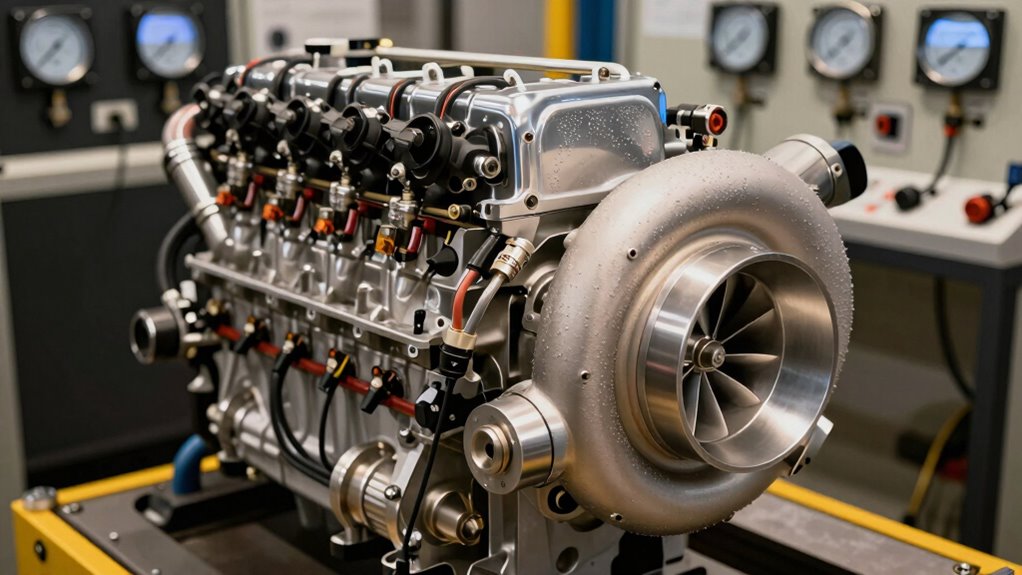
Diesel turbo lag isn’t inevitable—modern dyno diagnostics reveal the hidden culprits stealing your power. Find out what your engine is hiding.
Fleet operators are throwing money away. Dynos reveal what road tests miss—and how much you’re losing.
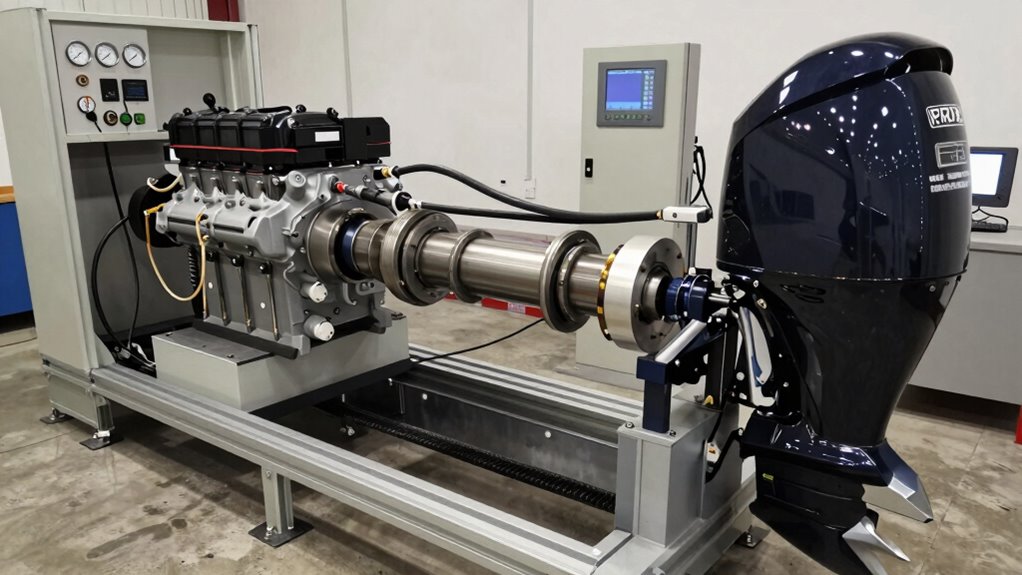
Water testing won’t reveal what dyno testing exposes. Learn why engine builders skip this step at their peril.
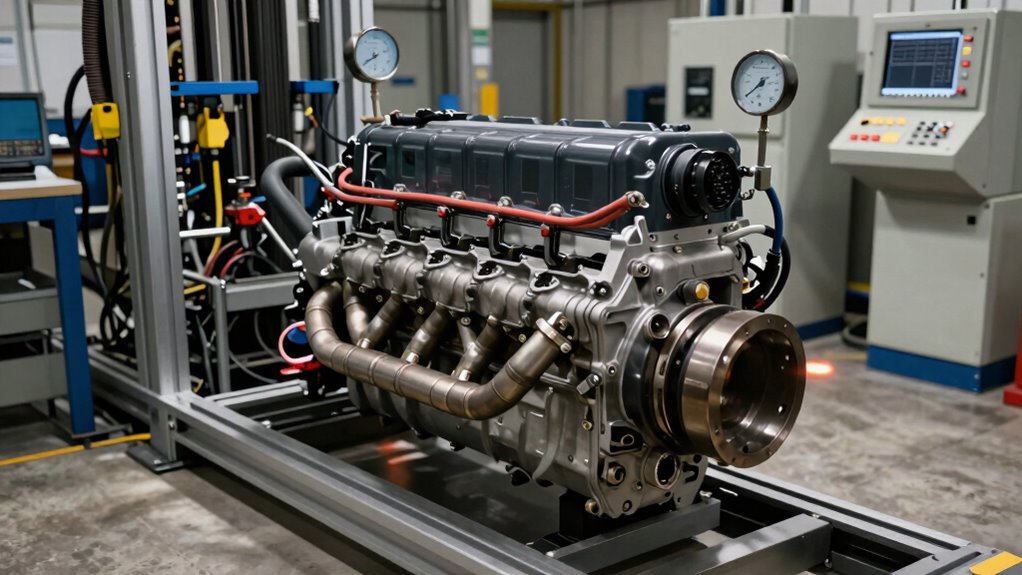
Tractor performance tests reveal what manufacturers won’t tell you. See how dynamometer data exposes hidden inefficiencies in your equipment.
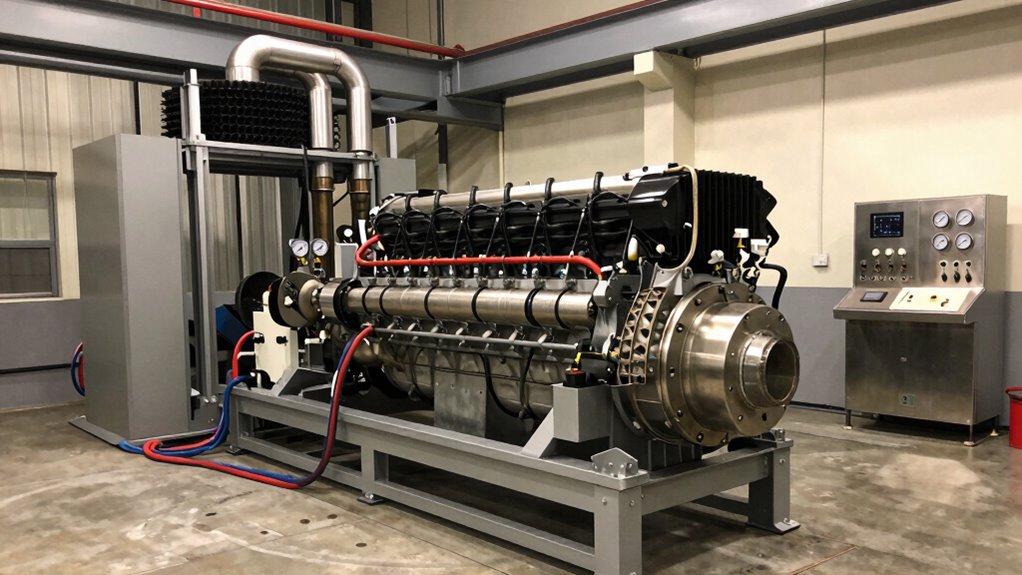
Diesel engine testing mistakes cost thousands monthly. Learn what separates thriving operations from regulatory nightmares.
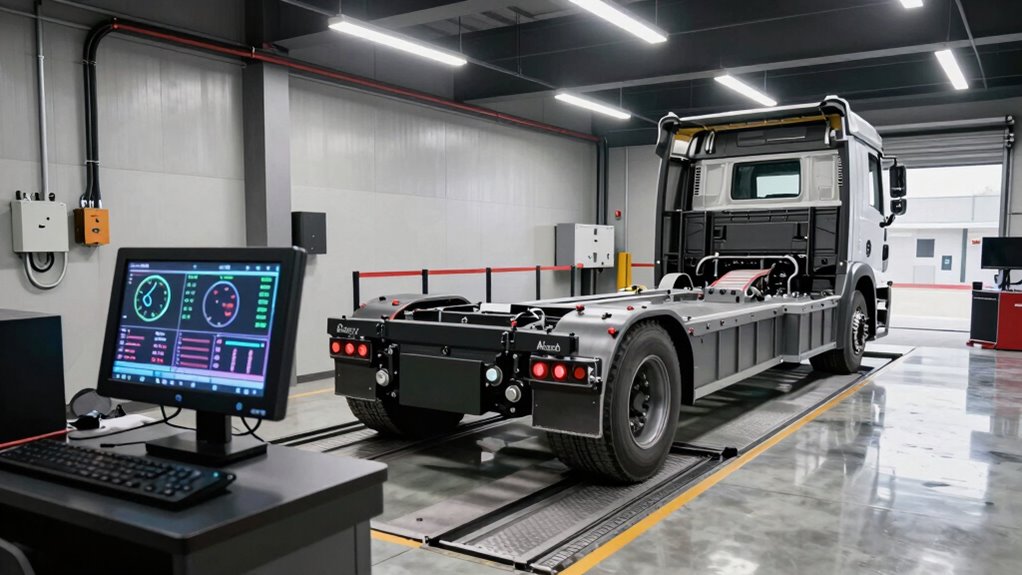
Build a diesel dyno empire while most workshops fail—here’s what separates winners from the rest.
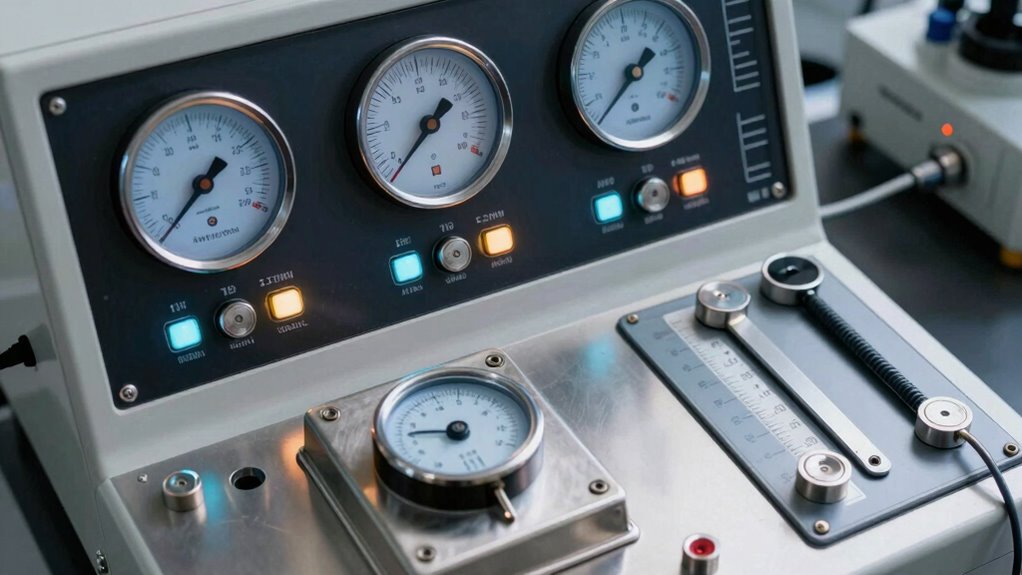
Most dyno operators ignore this one calibration step—and it’s costing them thousands in poor data.
No posts found!